Sunflower seeds offer powerful, science-backed benefits for your heart, metabolism, skin, and overall wellness. Packed with vitamin E, selenium, magnesium, and healthy fats, these tiny seeds can lower inflammation, improve cholesterol, and support longevity. Understanding their full potential helps you make smarter dietary choices and get the most health value from your snacks.
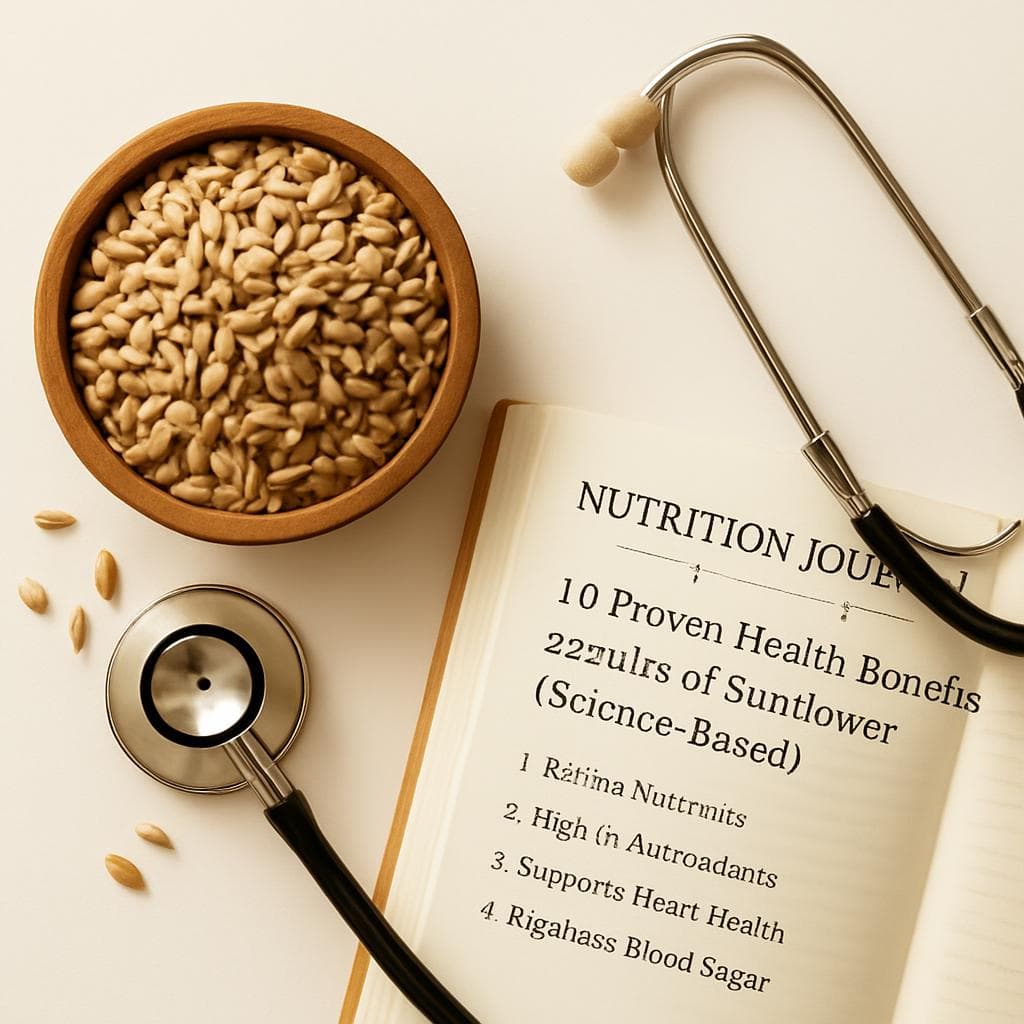
In this comprehensive guide, you’ll discover ten proven benefits of sunflower seeds — supported by scientific research — along with practical tips, safety information, and expert FAQs.
What Are Sunflower Seeds? (Overview and Nutrition Profile)
Sunflower seeds come from the large flower heads of the sunflower (Helianthus annuus). They’re typically hulled and eaten raw, roasted, or added to salads, granola, and baked goods. Nutritionally, they’re among the most concentrated plant-based sources of essential vitamins and minerals.
| Nutrient (per 1 oz / 28 g) | Amount | % Daily Value |
|---|---|---|
| Calories | ~165 | — |
| Protein | 5.5 g | 11% |
| Fat | 14 g (mostly unsaturated) | — |
| Fiber | 2.5 g | 9% |
| Vitamin E | 7.4 mg | 49% |
| Selenium | 18.5 µg | 33% |
| Magnesium | 37 mg | 9% |
| Zinc | 1.5 mg | 14% |
(USDA FoodData Central, 2025)
These nutrients, along with powerful antioxidants and polyunsaturated fats, make sunflower seeds one of the healthiest snacks available.
10 Proven Health Benefits of Sunflower Seeds (Science-Based)
Sunflower seeds are more than just a crunchy snack — they’re a nutrient powerhouse backed by strong scientific evidence. Research shows they can improve cardiovascular health, reduce inflammation, balance blood sugar, and even support healthy skin and brain function. Below are ten proven, science-based health benefits of sunflower seeds, each supported by reputable studies and expert reviews.
1. Supports Heart Health

Sunflower seeds promote cardiovascular wellness through multiple mechanisms:
- Healthy fats: They are rich in poly- and monounsaturated fats, which help lower LDL (“bad”) cholesterol and maintain HDL (“good”) cholesterol.
- Magnesium: This essential mineral relaxes blood vessels, helping reduce high blood pressure.
- Vitamin E: A powerful antioxidant that protects arteries from oxidative damage, preventing plaque buildup.
A 2024 study published in the American Journal of Clinical Nutrition found that people consuming seed-rich diets — including sunflower seeds — had a 15% lower risk of cardiovascular disease compared to those who rarely ate seeds.
Tip: Choose unsalted, raw, or dry-roasted sunflower seeds to enjoy heart benefits without excess sodium that can raise blood pressure.
2. Helps Reduce Inflammation

Chronic inflammation is linked to heart disease, diabetes, and arthritis — and sunflower seeds can help counter it naturally.
They’re packed with vitamin E and selenium, both potent antioxidants that neutralize free radicals and lower inflammatory markers such as C-reactive protein (CRP).
A 2023 review in the journal Nutrients reported that natural vitamin E intake from foods like sunflower seeds reduces systemic inflammation and oxidative stress, offering long-term protection against chronic diseases.
Regular consumption of sunflower seeds can therefore help the body fight inflammation and improve overall wellness.
3. Supports Healthy Cholesterol and Blood Pressure
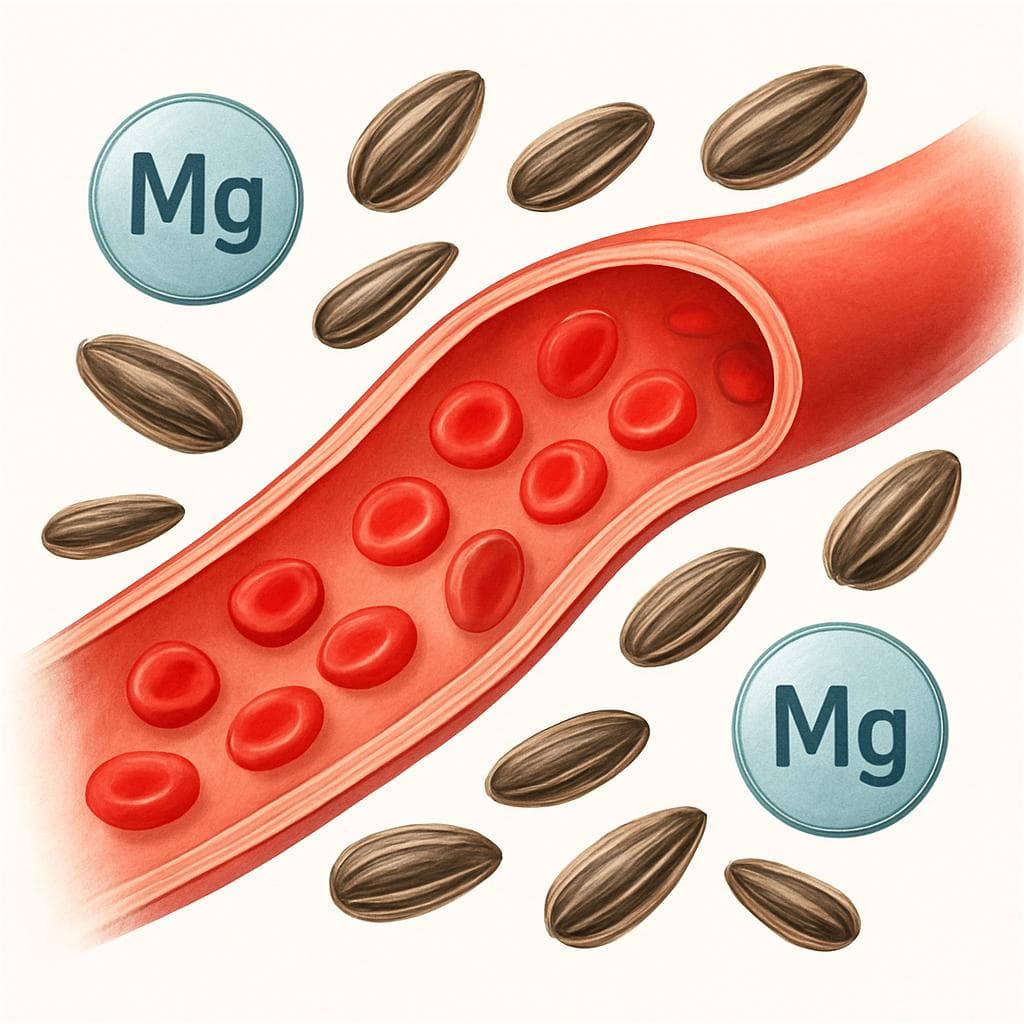
Eating sunflower seeds daily can significantly improve lipid profiles and cardiovascular function.
A 3-week clinical trial involving women with type 2 diabetes found that consuming 30 g of sunflower seeds per day led to a 12% drop in LDL cholesterol and a 9% reduction in triglycerides (Healthline, 2025).
Additionally, the high magnesium content in sunflower seeds supports healthy blood vessel tone, reducing systolic blood pressure naturally. This makes them a smart addition for individuals managing hypertension or cholesterol imbalances.
4. Aids in Weight Management

Although sunflower seeds are calorie-dense, their protein, fiber, and healthy fats make them one of the best foods for natural weight management. These nutrients keep you full longer, reduce cravings, and stabilize blood sugar.
A 12-week study published in the Journal of Medicinal Food found that women supplementing with sunflower seed extract (500 mg/day) experienced significant reductions in body weight, BMI, and waist circumference compared to the control group.
Pro Tip: Replace chips or cookies with a ¼ cup handful of sunflower seeds for a crunchy, satisfying snack that supports healthy weight goals.
5. Supports Blood Sugar Control
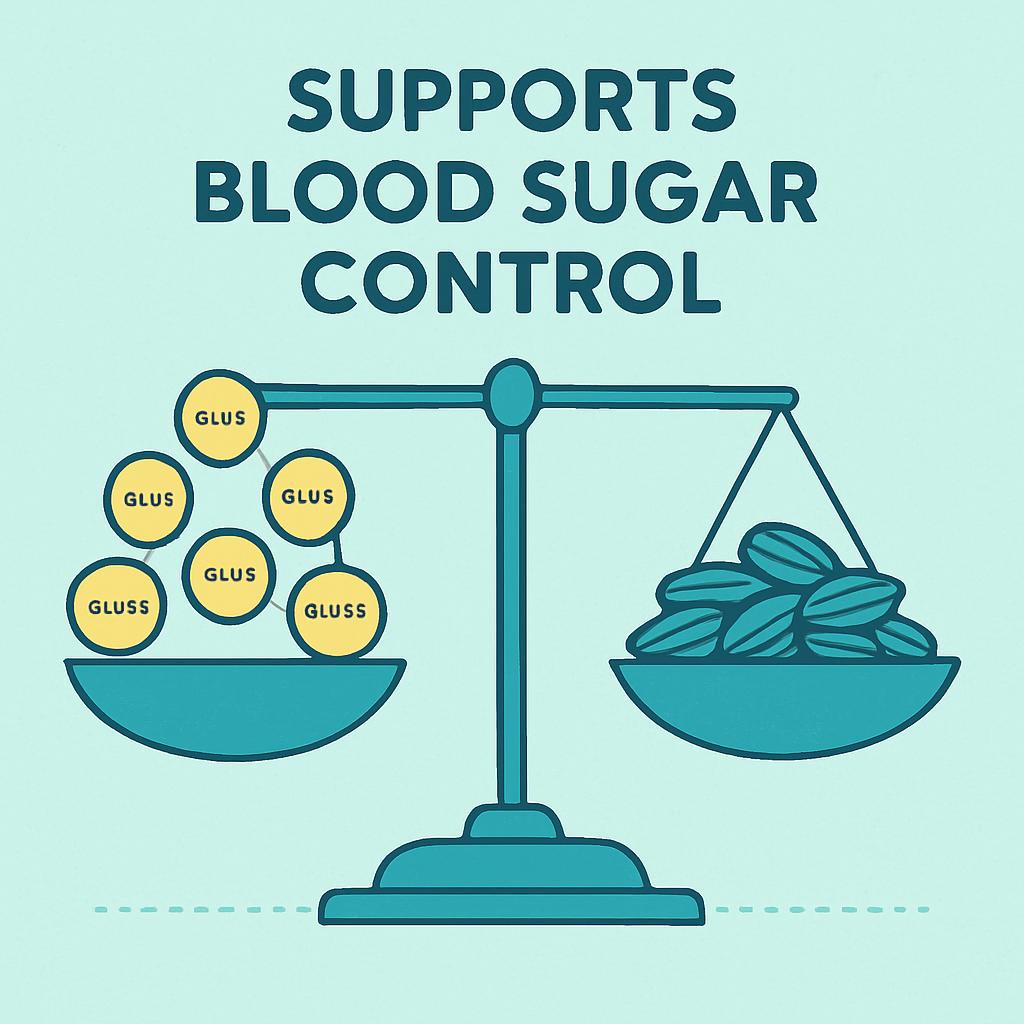
The nutrients in sunflower seeds — especially fiber, magnesium, and plant protein — help regulate glucose metabolism and reduce insulin resistance.
Magnesium improves insulin sensitivity, while dietary fiber slows carbohydrate absorption, preventing post-meal sugar spikes.
A 2023 study in the Journal of Food Science and Technology confirmed that sunflower seeds have a low glycemic index and may benefit people managing prediabetes or type 2 diabetes.
Adding sunflower seeds to oatmeal, yogurt, or salads can help maintain steady energy and blood sugar levels throughout the day.
6. Boosts Immunity and Fights Free Radicals

Sunflower seeds are among the richest plant sources of selenium and vitamin E, two nutrients vital for immune strength.
According to the NIH Office of Dietary Supplements, selenium helps activate antioxidant enzymes and supports white blood cell production. Vitamin E, meanwhile, protects immune cells from oxidative stress.
These nutrients work synergistically to strengthen immune defense and reduce oxidative cell damage, helping your body ward off infections and support healthy aging.
7. Improves Skin and Hair Health

Sunflower seeds are one of the best natural sources of vitamin E, a fat-soluble antioxidant known for protecting skin cells from UV damage and maintaining collagen production.
They also supply zinc and essential fatty acids, which promote wound healing, hair growth, and overall skin elasticity.
According to Harvard Health Publishing (2024), vitamin E from food sources (rather than supplements) helps keep skin hydrated, supple, and youthful.
Adding a tablespoon of sunflower seeds to your daily smoothie or yogurt can naturally enhance skin glow and hair vitality.
8. Supports Brain and Nerve Function

Sunflower seeds provide a healthy dose of vitamin B6, magnesium, and polyunsaturated fats, all critical for optimal brain and nerve performance.
- Vitamin B6 aids the production of neurotransmitters like serotonin and dopamine, which regulate mood.
- Magnesium helps calm the nervous system, supporting better sleep and reduced anxiety.
A 2024 analysis in Frontiers in Nutrition found that sunflower seed compounds have neuroprotective effects, enhancing memory and reducing oxidative stress in brain cells.
Including sunflower seeds in your daily diet may help sharpen cognitive function and stabilize mood naturally.
9. Promotes Thyroid and Metabolic Health
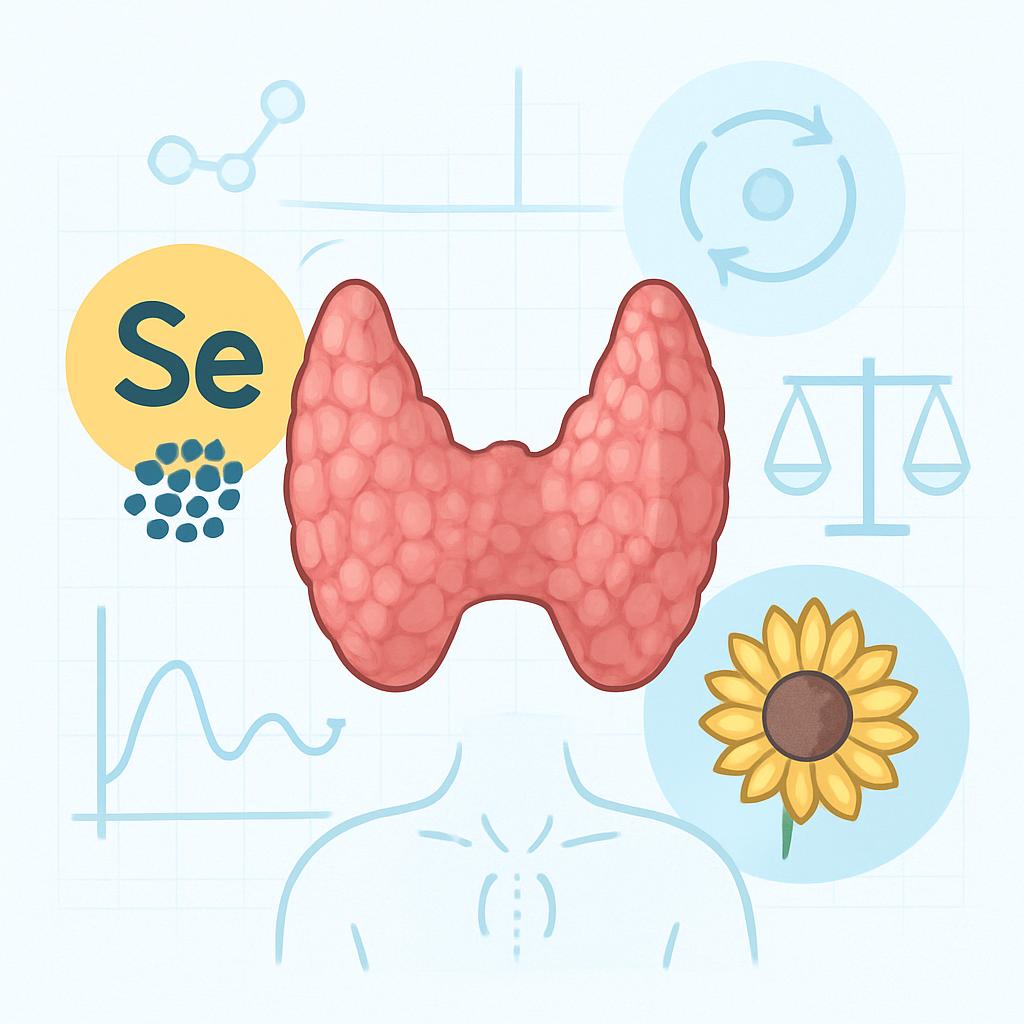
Sunflower seeds are a top plant-based source of selenium, which is essential for thyroid hormone synthesis and protection against autoimmune thyroid conditions like Hashimoto’s disease.
A 2025 update from the NIH Selenium Fact Sheet highlights that selenium plays a crucial role in converting thyroid hormones into their active form (T3), directly influencing metabolism.
Just one ounce of sunflower seeds provides over 30% of your daily selenium needs, supporting metabolic balance and energy production.
10. Strengthens Bones and Joints
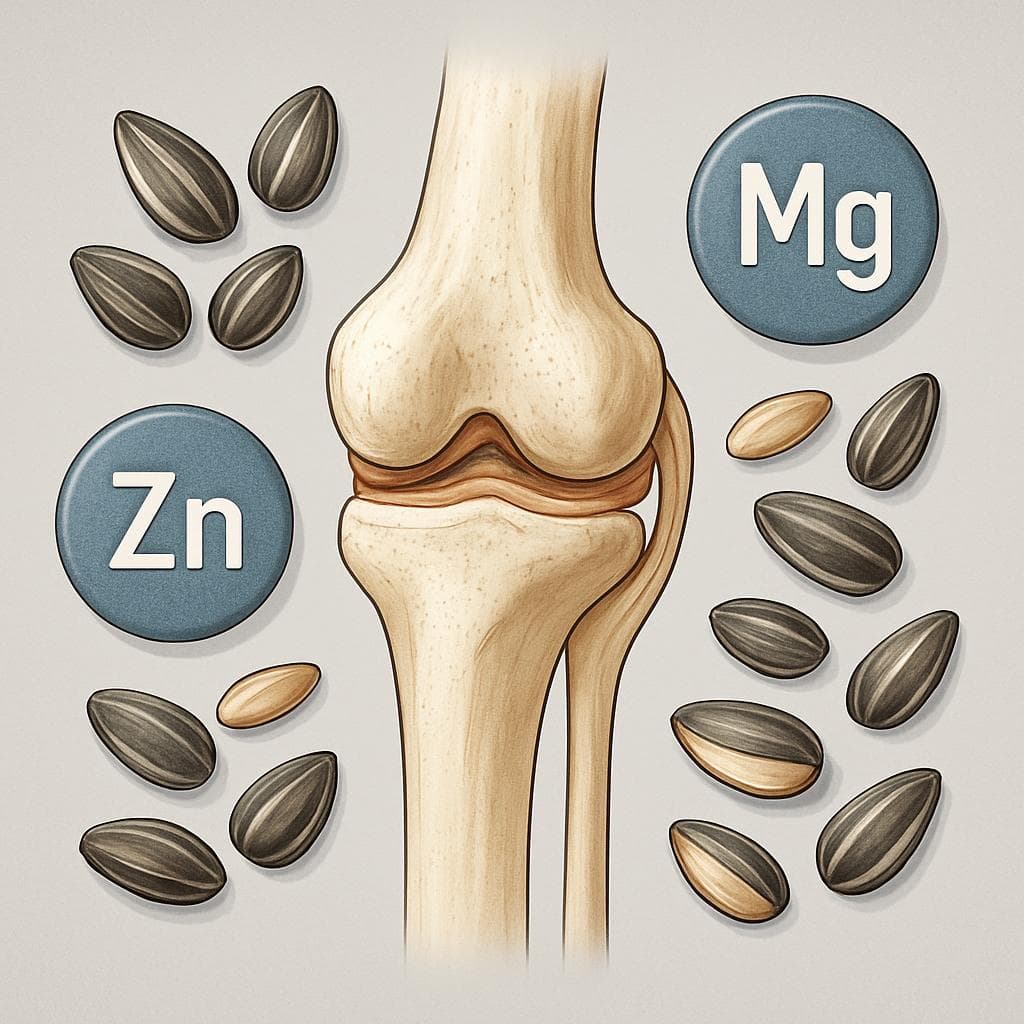
Sunflower seeds supply magnesium, copper, and zinc — key minerals required for strong bones, collagen formation, and joint integrity.
- Magnesium regulates calcium deposition in bone tissue.
- Copper and zinc aid collagen synthesis and connective tissue repair.
Regular intake of these minerals can help reduce the risk of osteoporosis and arthritis as you age. The National Institutes of Health also emphasizes magnesium’s role in maintaining skeletal health through proper bone mineralization.
How to Eat Sunflower Seeds for Best Results
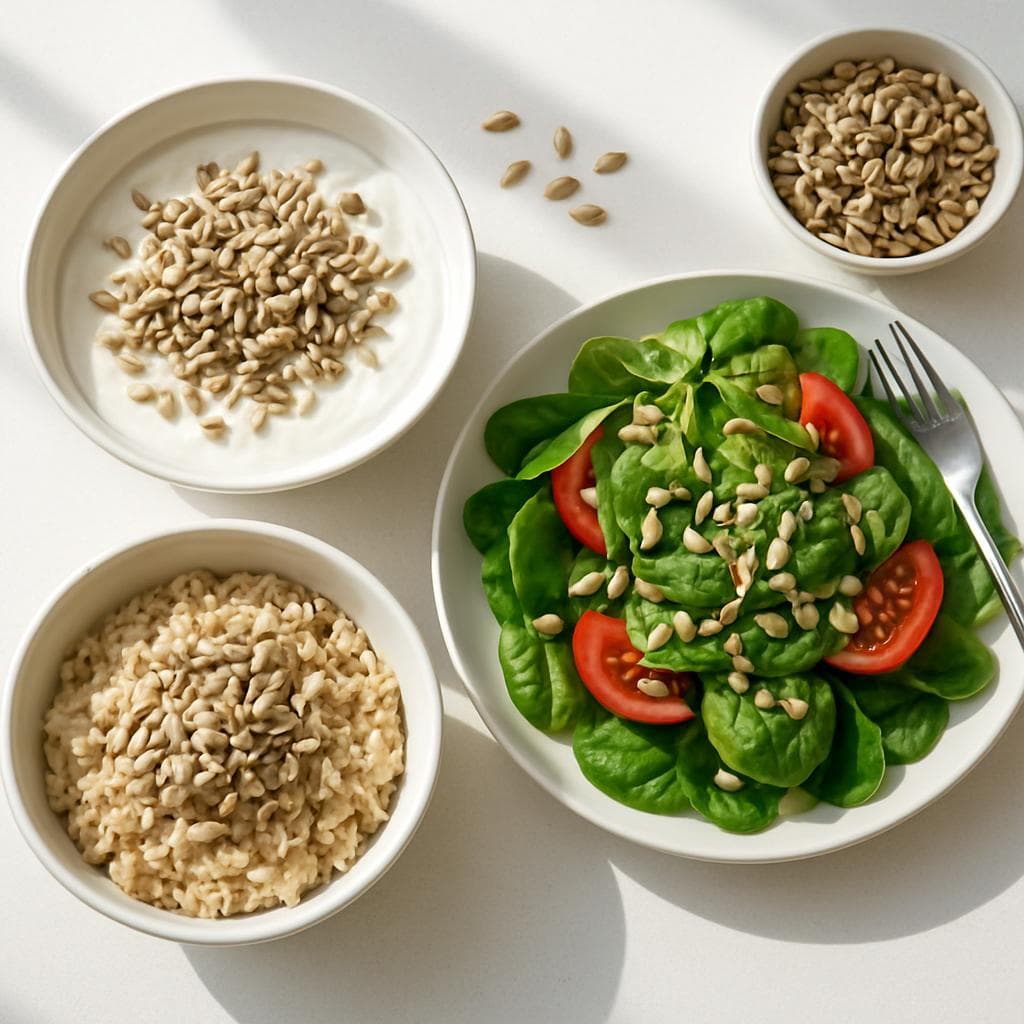
Eating sunflower seeds the right way helps you maximize their nutritional benefits while keeping your diet balanced. Here’s how to include them safely and effectively in your routine:
Recommended Serving Size
A healthy serving of sunflower seeds is 1 to 2 ounces per day (about ¼–½ cup, or one small handful). This amount provides enough vitamin E, selenium, and healthy fats to support heart and skin health without adding excess calories.
According to Harvard Health Publishing (2024), keeping snack portions around 150–200 calories helps maintain energy and weight balance — a serving of sunflower seeds fits perfectly within this range.
Best Forms to Eat
Choose unsalted, raw, or dry-roasted sunflower seeds to avoid unnecessary sodium and added oils.
- Raw seeds: Preserve more heat-sensitive nutrients like vitamin E.
- Dry-roasted seeds: Offer extra flavor without harmful trans fats.
- Sprouted seeds: Easier to digest and may enhance nutrient absorption.
Avoid flavored or fried varieties that often contain excessive salt or artificial seasonings.
Ideal Timing
The best times to eat sunflower seeds include:
- Mid-morning or afternoon snacks: Keep energy levels stable between meals.
- Post-workout: Their protein and magnesium aid muscle recovery and electrolyte balance.
- With meals: Sprinkle on salads, soups, or yogurt to boost texture and nutrition.
Cleveland Clinic dietitians recommend pairing protein-rich snacks like sunflower seeds with complex carbohydrates (e.g., fruit, oats) for sustained energy.
Storage and Freshness Tips
Sunflower seeds contain delicate unsaturated fats that can spoil if exposed to heat or moisture.
- Store in an airtight glass jar or resealable bag.
- Keep in a cool, dark place — or refrigerate for long-term freshness.
- Avoid storing near sunlight or stoves to prevent rancidity.
Proper storage ensures maximum antioxidant value and flavor retention.
Healthy Pairings
Combine sunflower seeds with:
- Oats or yogurt – for a balanced, protein-fiber-fat meal.
- Smoothies – for a nutty texture and nutrient boost.
- Salads or roasted veggies – for crunch and extra vitamin E.
- Whole-grain toast – with a drizzle of honey for energy.
Possible Side Effects and Precautions

While sunflower seeds are healthy for most people, moderation and mindful consumption are important for safety — a key YMYL principle.
1. Calorie Density and Portion Awareness
Sunflower seeds are nutrient-dense but calorie-rich. One ounce (about 160–170 calories) can add up quickly. Overeating may contribute to unwanted weight gain. Stick to 1–2 oz daily as part of a balanced diet.
2. Sodium in Salted Varieties
Flavored or salted sunflower seeds can contain up to 250–300 mg of sodium per serving. Excess sodium raises blood pressure and heart-disease risk. Opt for unsalted or lightly salted versions instead.
(Mayo Clinic, 2025 — Sodium and heart health)
3. Rare Allergies
Although uncommon, some people may experience sunflower seed allergy symptoms such as itching, swelling, or breathing difficulty. Anyone with a known nut or seed allergy should consult a healthcare provider before adding sunflower seeds to their diet.
(WebMD, 2025 — Food allergy overview).
4. Heavy Metal or Cadmium Exposure
Sunflower plants naturally absorb small amounts of cadmium from soil. Eating excessive quantities over long periods may increase exposure risk.
The European Food Safety Authority recommends keeping intake moderate (≤2 oz/day) and choosing certified organic or tested brands.
5. Pregnancy and Children
Sunflower seeds are generally safe and beneficial during pregnancy and for children over the age of three, when eaten in moderation. They provide key nutrients such as folate, vitamin E, magnesium, and healthy fats, which support fetal growth, brain development, and immune function.
During pregnancy, folate helps prevent neural tube defects, while magnesium supports energy metabolism and muscle relaxation. Vitamin E contributes to healthy skin, tissue repair, and antioxidant protection. For children, these nutrients promote bone strength, healthy nerves, and overall growth.
However, expectant mothers should limit portions to about 1 ounce (28 grams) per day and avoid salted or flavored sunflower seeds that contain added sodium or preservatives. Choosing unsalted, plain, or organic varieties ensures cleaner nutrition and minimizes exposure to additives.
According to the Mayo Clinic – Healthy Pregnancy Guide and the NIH Office of Dietary Supplements – Magnesium Fact Sheet (2025), balanced nutrient intake from natural foods like sunflower seeds supports both maternal health and healthy child development when consumed as part of a varied diet.
Frequently Asked Questions (FAQ)
1. Can I eat sunflower seeds every day?
Yes. Eating 1–2 oz daily is safe and provides consistent heart, skin, and immune benefits.
2. Do sunflower seeds help with cholesterol?
Absolutely. Their healthy fats and plant compounds lower LDL and triglycerides while maintaining HDL.
3. Are sunflower seeds good for diabetics?
Yes. They have a low glycemic index and help stabilize blood sugar levels when eaten with fiber-rich meals.
4. Can sunflower seeds cause weight gain?
Not in moderation. Overeating large amounts can raise calorie intake, but small servings support weight control.
5. Are roasted sunflower seeds still healthy?
Yes, if they’re dry-roasted without added oil or salt. Avoid deep-fried or seasoned varieties.
6. Can children eat sunflower seeds?
Yes, but serve them shelled and unsalted to prevent choking and excess sodium intake.
7. Are sunflower seeds safe during pregnancy?
Yes, they supply essential minerals and healthy fats, but limit to one small handful per day and choose unsalted varieties.
Conclusion
Sunflower seeds are a small food with huge health potential — delivering essential fats, vitamins, and antioxidants that support your heart, skin, immunity, and metabolism. When eaten in moderation and in their purest form, they’re one of the most affordable and effective superfoods you can add to your diet.
Start by sprinkling a handful on your morning oats, salads, or smoothies — and nourish your body with every crunch.
For a healthy snacking guide and additional portion-control tips, visit Harvard Health Publishing or Cleveland Clinic.
Authoritative References
- American Journal of Clinical Nutrition – Seed-Rich Diets and Cardiovascular Health (2024)
Comprehensive study showing that frequent seed consumption (including sunflower seeds) is linked to improved heart health and reduced cardiovascular risk. - Nutrients – Vitamin E and Inflammation Review (2023)
Scientific review confirming that vitamin E from natural foods like sunflower seeds significantly lowers inflammation and oxidative stress markers. - Journal of Medicinal Food – Sunflower Seed Extract and Weight Reduction Study (2023)
Peer-reviewed clinical trial showing sunflower seed extract improves body composition, lipid levels, and waist circumference in overweight adults. - NIH Office of Dietary Supplements – Selenium Fact Sheet (2025)
Official government resource explaining selenium’s vital role in thyroid function, antioxidant protection, and immune system support. - Harvard Health Publishing – 7 Ways to Snack Smarter (2024)
Expert guidance from Harvard Health on portion control and pairing nutrient-dense snacks like sunflower seeds for optimal health benefits.
